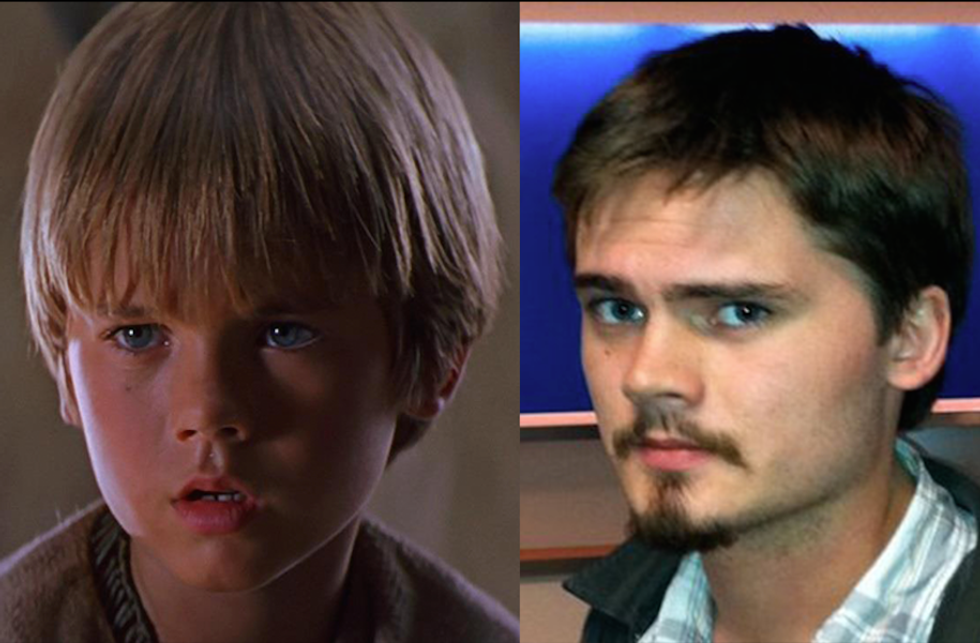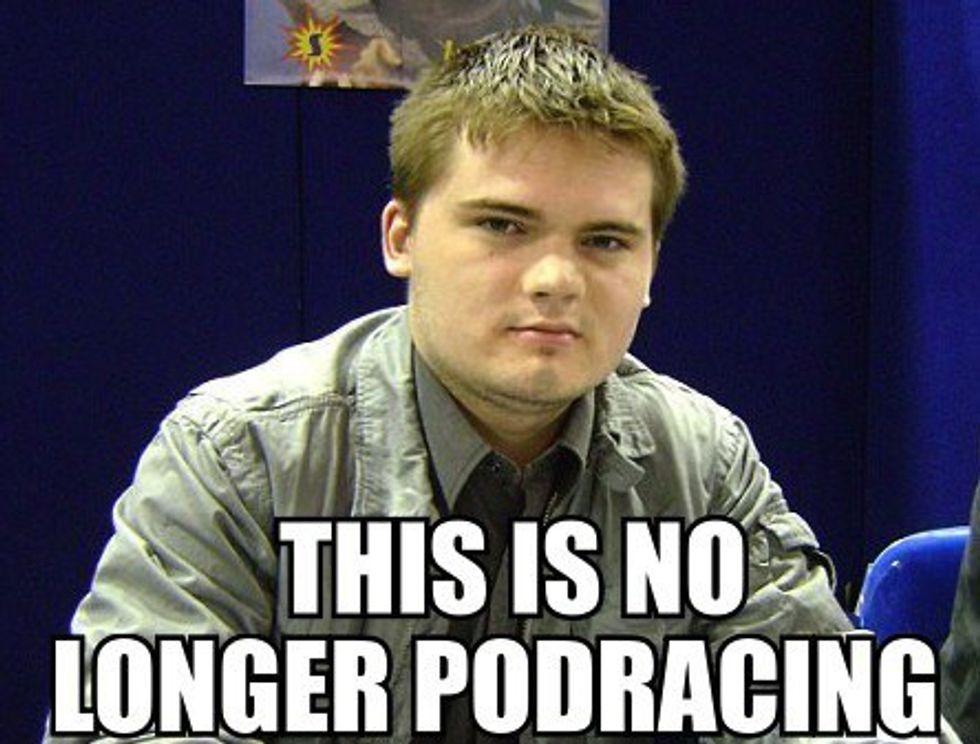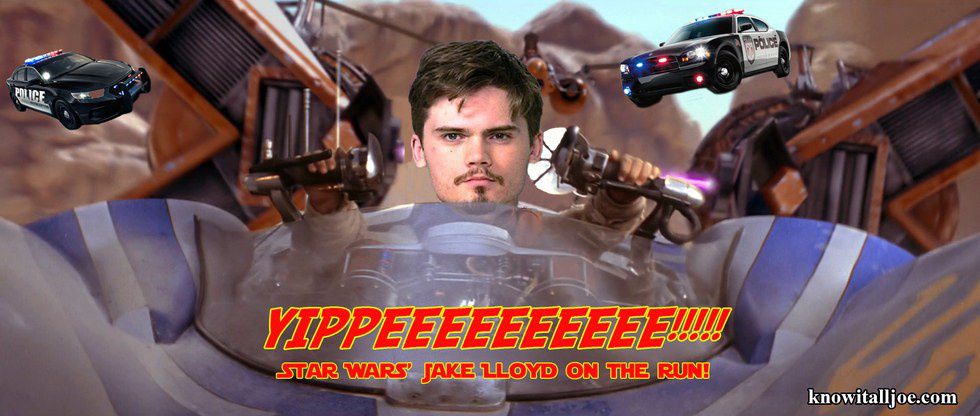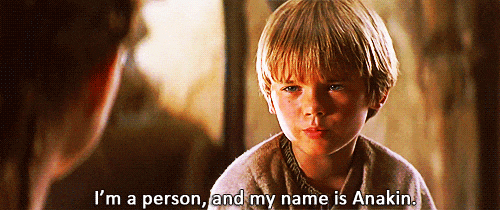Civilian or celebrity, if you have a mental illness, you can't run away from it. It will not be ignored. Rather, it will track you down, wrestle you to the ground, and, potentially, even immobilize you, and steal your life. It could also cause a ripple effect on the lives of your friends and family.
Star Wars' actor Jake Lloyd -- who played Anakin Skywalker in "Episode I, The Phantom Menace"-- suffers from schizophrenia.
His demons wasted no time in tracking him down when he went off his meds early last year. On the 26th of March 2015, a police report was filed after he drove to his mother's house and physically attacked her. A few weeks later, he led the police on a high-speed car chase through Charleston, South Carolina, hitting speeds of 117 miles per hour before crashing into a bunch of trees.
Since that time, Lloyd had been held in jail for ten months and was only recently being transferred to a psychiatric facility this past May.
I think this demonstrates the breakdown in our criminal justice system: how did it take close to a year for the courts to determine that a schizophrenic who'd gone off his medication and had committed those criminal acts during a psychotic episode needed to be transferred? Why was it not glaringly and immediately obvious that a psychiatric facility was the more appropriate rehabilitative place for him? I'm frustrated that it took so long but somewhat mollified that he's at least now receiving proper care.
The Internet thinks it's a big hilarious joke, though. In fact, most online hecklers seem positively delighted that Lloyd is ill and that they're provided a public forum to humiliate. The complete void of empathy was utterly gut wrenching.
In fact, there was so much parody made of him, not only making light of a very serious illness, but they took it to the extent of publicly shaming him for his mental illness.
It made me so furious that so many media outlets could be so irresponsible, cruel, and dangerous in their public messages-some of which went viral- that they'd contributed to propagating the stigma of mental illness.
The media can be cruel, and, when it comes to mental illness, the stigma remains intact.
It's the Amanda Bynes debacle all over again. Remember what happened with her? Let me remind you: she had that well-publicized mental breakdown in 2014 and was then diagnosed with bipolar disorder. Instead of being satisfied with an explanation for Bynes' bizarre and erratic behavior, the public went completely apeshit over the opportunity to mock her about it. She quickly became the butt of cruel Internet and talk show jokes for a long time thereafter.
This kind of portrayal does so much harm, I cannot even begin to describe it. It promotes shame, secrecy, self-blame, and often prevents individuals from seeking help when they truly need it.
When was the last time you heard someone casually use the term bipolar to assign a personality trait-descriptive instead of using words like temperamental or moody?
"I don't know what's wrong with my girlfriend, she's acting so bipolar."
Or as an adjective to describe something?
'"The toaster oven usually works, but it's been freaking out lately, it's like, bipolar."
Bipolar disorder and schizophrenia are legitimate diseases. They need to be respected as such.
You wouldn't treat someone with cancer that way, would you?
Haha! Look at the guy with cancer! Look at them getting sick from chemo! They're all weak and nauseous! They lost their hair. Omg, that bald lady is being so cancery, right?
I can't sit idly by while I see anyone who is mentally ill, celebrity or civilian, disparaged for being sick.
Stigmas are stigmas for a reason. The reinforcement of the popular myths around mental illness reinforces them and reaffirms them in society’s hearts and minds. It has to stop.
We can stop it.
How?
By educating ourselves, by being open-minded and inclusive, by asking how we can help.
Mental illness is not a choice; it's a disease, and those who are ill deserve just as much respect as anyone else. They are entitled to the appropriate level of care and they should not be ashamed to seek it.
I will say it again. Mental illness is a disease. I am mentally ill. I am bipolar and I am not ashamed.
A version of this essay appeared on The Mighty on April 13, 2016
























